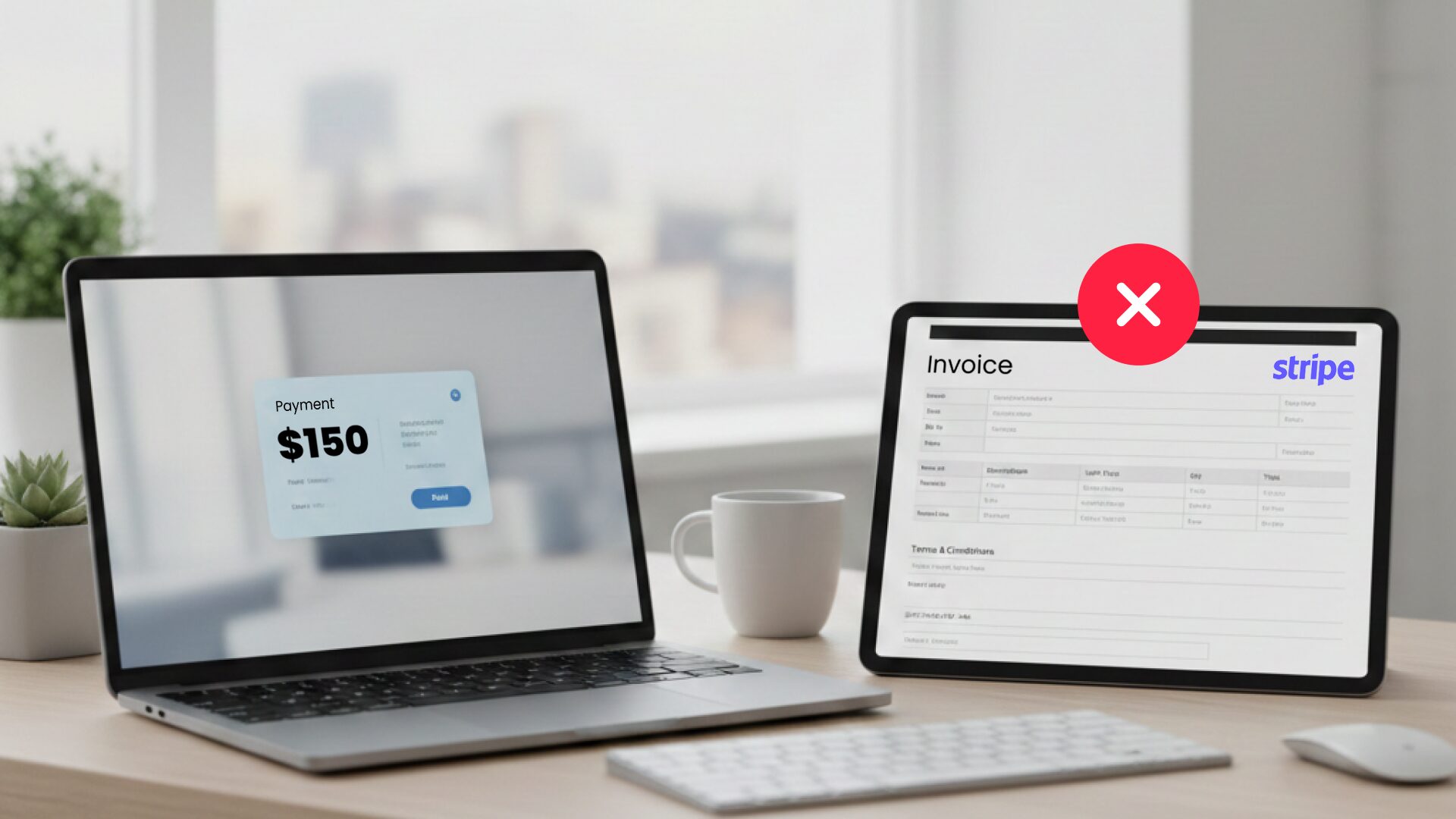VAT and Taxes in Estonia: How Do They Work?

Thinking about launching a company in Estonia? You’re not alone — thousands of founders choose Estonia each year for its digital efficiency and business-friendly tax system.
Estonia’s taxes are known for being simple, transparent, and surprisingly fair. In fact, the country consistently ranks as Europe’s most competitive tax system.
Still, it’s important to remember: Estonia is not a tax haven. It rewards smart, compliant entrepreneurs — not tax evaders.
Let’s start by demystifying one of the most confusing parts for newcomers: Estonian VAT . How it works, when you need it, and why it can actually benefit your business.
Table of contents
VAT in Estonia
Introduction (video)
In this video, we explain the Estonian VAT basics: how it is collected from customers, paid to the government, and possibly refunded, but we also share the golden rule you need to know if you have a company in Estonia.
When Do You Need a VAT Number?
Your company needs an intra-community VAT number in these cases:
- If any of your European customers need it for billing. This is usually quite frequent in medium or large European companies.
- If your company offers services such as web development, design, consultancy, marketing, etc., to European customers and earns more than 40,000 euros per year.
- If you offer services or digital products (software or digital content) to European B2C customers (end consumers) from the first sale.
- If you offer services or digital products (software or digital content) to European B2B customers (business to business) from the first sale and earn more than 40,000 euros per year.
Advantages of Obtaining a VAT Number
Although in these cases it is mandatory, at Companio, we always recommend that you register and obtain the VAT number, even if it is not necessary in your case.
Why? Because there are more advantages and no disadvantages:
- It allows you to operate more easily in the European Union. For starters, invoicing between European companies with VAT numbers implies adding VAT 0% to your invoice. That greatly simplifies invoicing and you avoid VAT payments back and forth.
- In addition, the VAT number adds reliability to your company for your customers and suppliers.
- It is also very useful to avoid always being aware of the different VAT of the different European countries.
VAT and Invoices
Now you may wonder if you must add VAT to your invoices and how much it is.
First of all, and this is important: if your company is NOT subject to VAT, that is, it does not have a VAT number starting with EE, you will NEVER add VAT to your invoices.
So what happens if your company is subject to VAT (VAT-liable)? Well, let’s see.
The rules are quite simple, and are based on the type of service your company offers:
A) Your services require your direct intervention
For example, if you offer software development services, consulting, marketing, etc., a different VAT will be applied depending on whether your customer is B2B (a company) or B2C (an individual person), if they have a VAT number or if they are in Europe:
➡️ If your customer is B2B, European, and has a VAT number, do not add VAT to the invoice (0%).
Instead, you add a clause to your invoice like this: “The purchase is liable to Intra-Community supply 0%, Reverse charge.”
You can check here if one of your customers’ VAT is valid.
➡️ If your customer is B2C or B2B without a VAT number, you add Estonian VAT (22%) to the invoice.
➡️If your customer is outside of Europe (eg United States), you do not add VAT (0%).
B) Your services do NOT require your direct intervention
On the other hand, if your services do not require your intervention, that is, they are automated (such as a web application that you have developed or the download of an eBook that you wrote a long time ago), then you need to get a VAT number from the Estonian authorities and then apply to the OSS scheme as soon as your sales exceed 10,000 euros a year, but we recommend you to do it even before you start selling your products or services.
Then, these rules apply:
➡️ If your customer is European, B2B (a company) with a valid VAT number, you do not add VAT (0%) and add the same clause.
➡️ If your customer is B2B or B2C, European, and does not have a VAT number, you add the VAT of their country of origin to the invoice. For a Spanish customer, for example, that would be 21%.
➡️ If your customer is outside Europe, you do not add VAT (0%).
⚠️ As an important exception, remember that your company is from Estonia, so you will have to add Estonian VAT (22%) for any invoice you make to another Estonian company (since it falls under the Estonian tax system).

Taxes in Estonia
The good news is that you will not pay any taxes on the money your company earns. All the money you reinvest in the company or justified business expenses are tax-free.
Therefore, as long as your company is limited to generating income, getting customers, and billing them, you will not have to pay taxes.
Therefore, while your company generates income, grows a customer base and invoicing them, and pays providers and suppliers, you will not have to pay anything.
In comparison, in most other business systems -especially in Europe- you will be paying from minute one, PLUS that monthly fee sometimes.
And now it is normal that you wonder… When do I have to pay taxes?
You will pay taxes when you withdraw money from your company to your accounts.
It is important to be clear about the difference between you and your company.
Even if you are the only member of your company, you are not like a freelancer: you and your company are independent entities.
There are two main ways to pay you money from your company: salary and dividends, but first, let’s explore the numerous benefits of Estonia’s tax system.
Taxes in Estonia: Advantages
Currently, Estonia ranks first in the International Tax Competitiveness Index (ICF). And there’s a good reason for it!
Here are some of the benefits of Estonia’s tax system:
- Low corporate tax: Estonia boasts one of the lowest corporate tax rates in the European Union, with a flat rate of 22%.
- Territorial taxation system: Estonia follows a territorial taxation system, meaning only profits earned within the Estonian territory are taxed. Profits generated outside the country are tax-exempt.
- Avoidance of double taxation: Estonia has signed double taxation treaties with many countries, ensuring that businesses are not taxed twice on the same income in Estonia and the country of origin.
- Easy and quick tax filing: The Estonian tax declaration system is agile and straightforward, allowing you to file your taxes online within minutes.
- Tax exemption on reinvested profits: As mentioned earlier, profits reinvested in business development and growth are tax-exempt until distributed.
- Stable and transparent tax environment: The tax laws in Estonia are precise and predictable, providing confidence to investors and businesses alike.
Annual dividends
Once your company earns profits, you can distribute dividends once a year, after submitting your annual report.
That report is prepared starting in January of the following year and must be filed between January and June 30.
Understanding Dividend Tax in Estonia
Dividends in Estonia are taxed at a 20% gross rate.
Unlike most EU countries, Estonia calculates tax on the gross amount, not the net amount.
Here’s a quick example:
If your company distributes €8,000 net in dividends, you’ll pay €2,000 in taxes, which equals 20% of the gross amount (€10,000).
In other words, the effective net tax rate is 25%.
Lower Tax Rate for Regular Dividend Payments
If your company pays dividends regularly, Estonia rewards consistency with a reduced rate:
the tax drops to 14/86 (plus 7% personal income tax).
The Estonian Tax Office automatically calculates this amount, so you don’t need to do the math yourself.
Double Taxation and Country of Residence
When your Estonian company distributes dividends, the company pays taxes in Estonia.
However, you — as the shareholder — may also owe taxes in your country of residence.
Most countries have double taxation treaties with Estonia, ensuring you’re not taxed twice on the same income.
EU regulations, Estonia defines the taxpayer as the company itself, not the individual receiving the dividends.
tart=”1868″ data-end=”2123″>That means double taxation treaties may not apply automatically. Since the company — not the person — is considered the entity that paid tax in Estonia.
Implementation varies between EU countries, so rules may differ depending on where you live.
Always Consult a Local Expert
Because these regulations are evolving, it’s essential to consult a local tax advisor who understands both Estonian and your country’s laws. They’ll help you determine exactly what percentage you should pay and ensure full compliance on both sides.
Salaries
If you hire people for your team or assign a salary for yourself, you must understand the difference between two figures when hiring and paying taxes: employees and contractors.
There is also a third figure that is rather an exception: the location-independent people or digital nomads.
Let’s see it.
A) Employees
Salaries are paid to company employees, or you can assign them to yourself, which means you will be responsible for paying full taxes on your salary or the employee’s salary (income tax, social benefits, etc.)
B) Contractors
Contractors need to be registered in their countries of residence as freelancers.
The good news is that your company does not pay any taxes</strong> for these contractors. Thanks to the innovative tax system of Estonia, any non-distributed profit that gets re-invested in the company is tax-free, including the contractor’s work.
C) Location-independent people
As an exception, if you or any of your employees are location-independent individuals, not having a tax residence (for example, a digital nomad without tax residence), your company would pay them a contractor fee instead of a regular salary.
However, it’s important to understand that being a digital nomad or having no fixed tax residence does not exempt them from their tax obligations or the need to comply with the authorities in their country of residence, so they should consult with a local tax advisor.
As it is considered a contractor or freelancer your company does not pay any taxes.
👀 Example
Imagine that Ana is the CEO of a web design agency called “Ana Web Designs OÜ”, which earns about 15,000 euros a month on different recurrent projects.
Ana works with Indrek, a developer from Estonia, and Enrique, a designer from Argentina.
Ana is a location-independent entrepreneur without tax residence that spends her time throughout Thailand, Malaysia, Indonesia, and Vietnam, never spending more than 183 days in any of these countries.
At this stage, Ana pays herself 2000 euros net, 1500 euros net to Indrek, and 1500 euros net to Enrique.
Ana: the location-independent entrepreneur
Ana, as a location-independent entrepreneur, does not have a tax residence, so this means that:
<ul>
- She has asked a local tax advisor, and she does not have to pay taxes for her salary anywhere in the world and has no obligations in terms of social taxes, social s
ecurity, or social benefits.
- She pays for a private health insurance plan separately.
- His salary does not need to pay taxes in Estonia or anywhere else.
Indrek: the Estonian employee
Indrek lives in Estonia and the company hires him as an employee there, which means:
- Ana Web Designs OÜ pays taxes for his salary, social benefits, unemployment, and pension.
- The gross salary of Indrek is 1918.93€, and the total cost for the company (including all social benefits) is 2567.53€.
Enrique: the Argentinian freelancer
Enrique lives in Argentina and is registered there as a freelancer. This means:
- Ana Web Designs OÜ does not need to pay additional taxes for Enrique. This is the contractor’s work.
- This expense, as a deductible business expense re-invested in the company, is tax-free.
- Enrique, however, may need to pay taxes in Argentina, depending on his global revenue.
The total cost of Ana’s staff (including herself) is 6,067.53€.
Smart expenditure management
Not paying Estonian taxes for the money of your company that’s reinvested, or not distributed, is quite an innovative concept, and is one of the main appeals of the Estonian business system.
Let’s see how you can benefit from its advantages.
The justified expenses of your company are tax-free.
A justifiable expense is an expense related to your activity that does not constitute a permanent link with another country (such as Spain), thus preventing this country from considering your company to be a tax resident there.
Tax-free business expenses
Yes, that’s right, all justified business expenses of your company are free of taxes.
But what is a justified business expense?
Any expense that is relative to your activity, and does not constitute a permanent establishment to another country, to prevent that country from considering your company as a tax resident there.
Let’s see some examples.
Deductible expenses
- Website expenses: hosting, domains, web design, storage fees, and any other web service that your business needs.
- Administrative tools and online or offline management software, accounting, and so on.
- Web tools, subscriptions, and software that you need to develop your activity.
Office fungible stuff.
- Public transportation for work reasons, including flights, trains, services such as Uber or Taxify, and accommodation, such as Airbnb. This includes trips to Estonia (to open your bank account).
- Payment and banking expenses, such as payment gateways for your online store, banking fees, or similar charges.
- Business meals of your customers, but only the meal of your customers, not yours.
- Payments of contractors that work for the company, as we explained before.
Non-deductible expenses
❌ Your car or gas used to travel inside the same country. Travelling between countries to visit customers is a justified business expense, but not your car, or gas. Public transport inside the same country is, however, a justified expense.
❌ Holidays and pleasure trips. You have to be careful if you decide to “visit a customer” from the 24th to the 31st of December. Better get written proof of the meeting signed by your customer.
❌ Permanent offices, facilities, or premises outside of Estonia. It is not allowed to have an office or facilities outside of Estonia for more than 6 months a year unless you want to run into trouble with the local tax authorities.

Daily Allowance
The Daily Allowance is an amount that you are allowed to take out of your business account, tax-free, when you do business trips. It is supposed to cover your expenses when travelling for work (such as meals, WiFi access, etc).
These are the requirements for the daily allowance:
<ul>
- You must declare the trip with the dates in advance and justify it (plane tickets, AirBnB, and th
e entrance to the congress).
- It only works for trips with a specific duration and a specific goal. You cannot travel to Thailand, stay there for a year, and assign yourself daily allowances every month. This would be a fraud of law.
The amount of the Daily Allowance covers up to €50 for the first 15 days of the month plus €32 for the rest, free of taxes, if the trip lasts that long.
In our example, if Ana provides the documents that justify it, she could withdraw 50*7 = €350 from her company account, without having to pay taxes on it (from January 1, 2025, daily allowance amounts will be increased to €75 for the first 15 days and €40 remaining).
Out-of-pocket expenses
The Estonian business system is very flexible and offers many possibilities.
For example, imagine that you forget the credit card associated with your company on a justified trip, and you need to pay an extra expense with it.
What can you do?
No problem, you can pay with your credit card and then declare the invoice as an expense. At that time, that expense would be declared as “Out of pocket expenses”, and that money would be re-entered back into your bank account without paying taxes on it.
Frequently Asked Questions
Here you have to consider that you and your company are separate entities, so your personal and company tax residency will generally not coincide. If you are an e-resident, you will not live in Estonia unless you decide to reside there.
Each country has its own rules to determine personal tax residency.
However, it is common to be considered a tax resident in a place if you reside there for more than six months per year.If you are a digital nomad, it depends on the time you reside in a particular country and its rules.
If you reside in Spain and have a company in Estonia, you may have to pay taxes in Spain.
It is always advisable to consult a local tax advisor. We can help you with Companio One Spain if you live in Spain.
The good thing about Estonia is that you can file your taxes 100% online, and it is straightforward if you do it with an official provider like Companio.
In Estonia, accounting is done monthly, regardless of your sales or income, so your service provider will need all the transactions and documents to be updated monthly.
Suppose you pay salaries to board members or Estonian employees. In that case, you must file the TSD report, which must be submitted by the 10th day of the month.
If you must declare VAT, the report must be submitted by the 20th day of the month.
Being an e-resident does not automatically exempt you from taxation in other countries where you operate or earn income.
However, as we saw earlier, Estonia has signed double taxation treaties with many countries.
There is no self-employed fee in Estonia. As long as your company does not distribute salaries or dividends, you will not have to pay a single euro in taxes.
A Fair, Simple, and Transparent System
This article shows that Estonia’s tax system is straightforward to comprehend and logically structured, so you should not worry about it.
If you want to worry even less about taxes, at Companio we help you with the tax reports, so you save a lot of time and focus on what is most important: your business.
Do you want to know how we can help you? Click here.
 Ignacio Nieto
Ignacio Nieto


